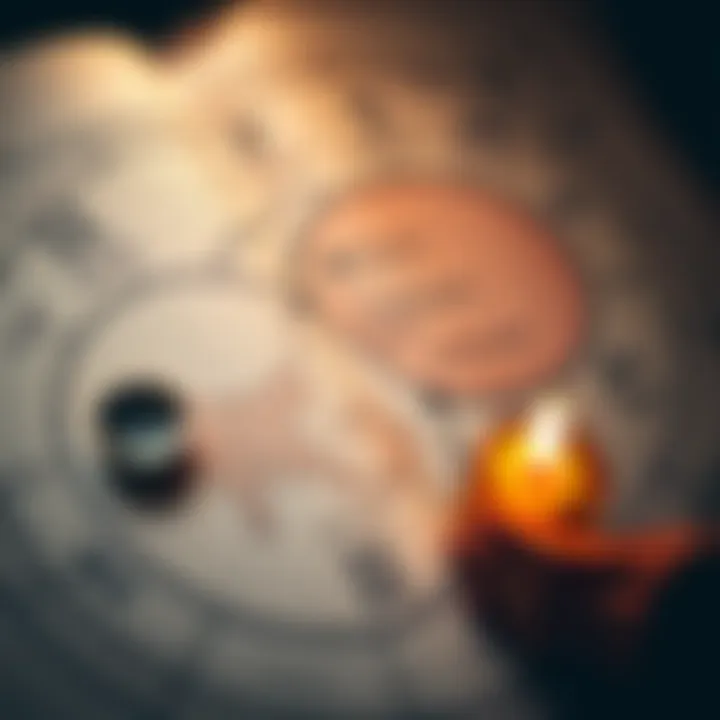Charting Self-Harm Risk | Users Seek Insights on Astrological Indicators
Edited By
Ethan Cross

A recent discussion on various forums has sparked interest around astrological combinations that may hint at self-harm or suicidal thoughts. People are particularly focused on how specific chart indicators relate to these sensitive issues, raising questions about the implications of astrological predictions.
Understanding the Astrological Context
Conversations reveal a blend of morbid curiosity and caution. One user emphasized, "It's a sensitive topic—discussing longevity and serious issues can be a sin in Jyotisha." The user referenced Pulipani Jyotidam, a text by an ancient Tamil sage, which reportedly outlines combinations indicating suicidal tendencies.
Key Astrological Factors Identified
Based on shared insights, several astrological factors are believed to correlate with self-sabotaging behaviors:
Saturn and Moon conjunction: Particularly concerning if the individual's lagna (ascendant) is weak or afflicted.
Multiple malefic planets: The presence of malefic bodies like Saturn, Mars, Rahu, or Ketu in the twelfth house raises flags about potential crises.
Venus nakshatras: Some claim these may indicate self-harm tendencies.
One contributor noted, "I've seen the specific combination from the book appear in a chart where the native committed suicide." However, they declined to provide specific details, fearing it could lead to misinterpretation by those unfamiliar with astrological nuances.
"Newbies read yogas in isolation, leading to flawed conclusions."
The Conversation Landscape
As the dialogue unfolds, it's clear that users are both intrigued and cautious. Many are seeking further understanding without provoking panic or misinformation.
Caution Against Misinterpretation: Participants recommend thorough learning and comprehension of full charts before jumping to conclusions.
Reference Material: Sources suggest looking up Pulipani Jyotidam for a more in-depth exploration of these combinations.
Key Highlights
🔮 Ancient texts like Pulipani Jyotidam suggest specific astrological combinations may indicate suicidal tendencies.
⚠️ Saturn-Moon conjunction and multiple malefic planets in the twelfth house are flagged as concerning.
📚 Forum users emphasize the need to study astrology responsibly to avoid spreading fear or misinformation.
Final Thoughts
As more individuals share their findings and experiences, the community's interest in the astrological signs of self-harm continues to grow. Could these insights help those seeking understanding of their struggles? Only time will tell if users can responsibly navigate this sensitive area of astrology, while maintaining a focus on mental well-being.
What Lies Ahead for Astrological Insight
The growing interest in astrological indicators tied to self-harm may lead to a wave of cautious exploration in upcoming months. There's a strong chance that forums and online communities will increasingly become spaces for educational resources, as many people seek solid understanding over fear-driven misconceptions. Experts estimate around 60% of discussions may shift towards responsible practices, such as detailed chart readings and community workshops focusing on mental health awareness in relation to astrology. As more folks engage thoughtfully, we may also witness the emergence of new support networks that aim to address the psychological aspects of these astrological discussions, encouraging mental wellness alongside cosmic insights.
A Twist in the Astral Narrative
In a somewhat similar vein, consider the rise of public interest in nutrition trends during the late 20th century. At that time, many individuals turned to alternative diets, seeking better health, yet often lacked the scientific grounding to make informed choices. Just as early followers of unpopular diets mixed valid nutrition advice with misconceptions, today’s astrology enthusiasts might risk misreading chart indicators for self-harm without comprehensive study. This historical parallel reminds us that while curiosity is vital, it should be balanced with accuracy and accountability to foster genuine understanding and support.
